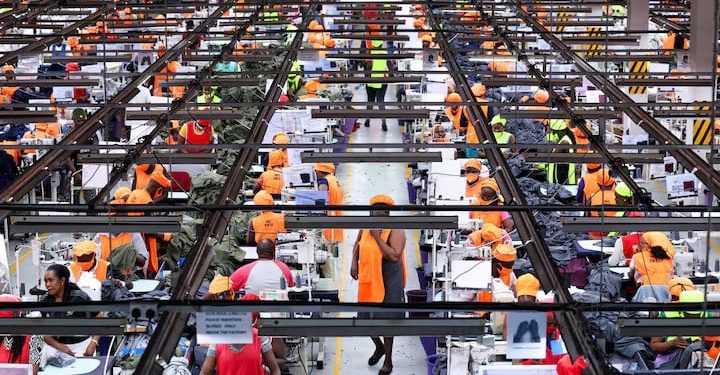Washington, D.C. – The Trump administration has announced its support for a one-year extension of the African Growth and Opportunity Act (AGOA), a key trade initiative that grants sub-Saharan African countries duty-free access to the U.S. market. The law officially expired on September 30, 2025.
A White House official told Reuters that the administration is backing a temporary extension, marking the first public position on AGOA since President Trump took office in January 2025. AGOA, first enacted in 2000, has been credited with supporting hundreds of thousands of jobs across more than 30 African nations and fostering export diversification.
Despite broad bipartisan support for renewing the act, prospects for a longer-term extension remain uncertain. The most likely legislative route for a renewal is attachment to a stopgap funding bill that Congress is considering to prevent a U.S. government shutdown after Tuesday. Alternatively, AGOA could be reinstated later in a separate legislative effort.
Impact of AGOA Expiry on African Economies
Analysts warn that the expiry of AGOA could significantly undermine African export diversification and industrialisation. Tariff hikes would primarily affect apparel, agricultural, and food exports. According to UN Trade and Development (UNCTAD) data, average tariffs for AGOA-eligible countries could rise from below 0.5% earlier this year to between 10% and 30%, depending on the sector.
Countries like Lesotho, where roughly one-third of exports are tied to AGOA and predominantly in the apparel sector, stand to lose the most. The sector employs between 30,000 and 40,000 workers, most of them women. Labour-intensive exports such as textiles, apparel, fish, and dried fruits would face steep tariff increases without the preferential treatment AGOA provides.
More diversified economies, including South Africa, are somewhat insulated from AGOA’s expiry due to the composition of their exports. Still, they have already been affected by U.S. country-specific and sectoral tariffs introduced since April 2025. Conversely, countries heavily reliant on fuels and minerals, like Nigeria, Angola, and the Democratic Republic of Congo, would see minimal impact.
UNCTAD officials caution that the end of AGOA could exacerbate Africa’s commodity dependence, hindering industrialisation and export diversification. Labour-intensive sectors, vital for poverty reduction and women’s employment, would bear the brunt of higher tariffs. Small exporters such as Kenya, Cabo Verde, Madagascar, Tanzania, and Lesotho could face trade-weighted tariffs of 20% or higher, potentially exceeding those applied to many developed countries.
AGOA’s Strategic Importance
Supporters argue that AGOA helps diversify U.S. supply chains and counter Chinese influence in Africa. African governments and investors have been lobbying for a one- or two-year extension, following the failure of longer-term renewal efforts to advance in Congress.
The temporary extension backed by the Trump administration could provide short-term relief for African exporters. Still, uncertainty remains about the long-term trajectory of trade relations between the U.S. and sub-Saharan Africa.
For countries reliant on labour-intensive exports, the clock is ticking, and decisions made in Washington could have far-reaching consequences for jobs, industrialisation, and economic diversification across the continent.








